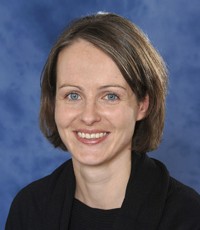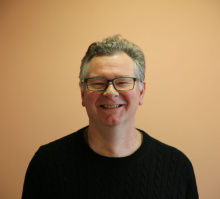Key note speakers
|
|
Céline Lafontaine Céline Lafontaine is professor at the Department of Sociology of the University of Montréal. She is interested in the issues in technoscientific development, notably the economic, social and cultural impact of biomedical innovation. She pursues research on the topics of regenerative medicine, nanomedicine and stem cell therapy. Her last book is entitled : Le corps-Marché. La marchandisation de la vie humaine à l'ère de la bioéconomie, Seuil, Paris 2014. |
My Body, my Capital : Biocitizenship in the Era of Neoliberalism
Céline Lafontaine
Centered on the maintenance, control, improvement and extension of individual vitality, biocitizenship is characterized by a refocusing of policy on health issues. The biological body thus appears torn between two opposing movements: that of its development as a biological resource and that of its overvaluation as an identity support. Broken down into a series of elements (genes, cells, organs, tissues), the body is both the raw material essential to the deployment of the biomedical industry and recipient of biotechnological innovations. The valuation of "life itself" and the ideal of perfect health characterizing biocitizenship result in a representation of the body as capital. The maintenance and extension of health then appear under the angle of an investment that increases the "value" of individuals. This conception of the body as capital is reflected, for example, in the development of private banks of umbilical cords that encourage parents to invest in their child's biological capital. More generally, the conception of the body as capital motivates biocitizen to want to invest in maintaining their health by taking risk as in the case of medical tourism. Beyond hopes, suffering and anxiety experienced by patients facing illness, the body representation as individual capital is in fact a neoliberal culture that turns every patient in contractor.
Monday 27 June 2016, 13:30-14:30, Unimail
|
|
Natalie Armstrong Natalie Armstrong is Senior Lecturer in Social Science Applied to Health in the Department of Health Sciences at the University of Leicester. A medical sociologist by background, her work focuses on using sociological ideas and methods to understand health and illness and to tackle problems in the delivery of high-quality healthcare. While her work covers many health topics, she is particularly interested in preventive services and women’s and children’s health. Dr Armstrong is an associate editor of the journal BMJ Quality and Safety, and has published widely in both health and social science journals. In 2012 she published ‘The Sociology of Medical Screening: Critical Perspectives, New Directions’ with Helen Eborall. |
Navigating the Uncertainties of Screening
Natalie Armstrong
Screening programmes are social interventions as much as they are medical interventions, and can pose challenging ethical, legal and social dilemmas. The sociological scrutiny of screening can be particularly useful both in informing the development and implementation of screening programmes, but also in developing sociological theory.
Debates and controversies about screening are rarely confined to policy makers and health professionals. Contestations about the science underlying population screening are common, and frequently enter the public sphere, engaging with wider societal themes and normative questions. The difficulty of establishing a screening test with maximum sensitivity and specificity (thereby avoiding as many false negative and false positive results as possible) is often underestimated and underrepresented in the popular press. Instead, pleas for new or extended screening programmes typically draw on discourses of rights or entitlements rather than the need to balance possible harms and benefits.
Recent years have seen a marked shift, at least in policy terms, towards screening based on an individual’s informed consent, having weighed up the possible harms and benefits, rather than on an expectation of attendance. In turn, an increased focus on possible harms is evident within information material sent to those invited, and tools to help people make decisions about attendance are beginning to emerge. This paper will explore some of the challenges involved in trying to achieve this informed consent model in practice.
Tuesday 28 June 2016, 13:00-14:00, Unimail
|
|
Paul Higgs Paul Higgs is Professor of the Sociology of Ageing at University College London. He co-authored with Chris Gilleard of Rethinking Old Age: Theorising the Fourth Age (2015). Professor Higgs is an editor of the journal Social Theory and Health and has published widely in both social gerontology and medical sociology. He has also published Medical Sociology and Old Age (2008) with Ian Jones and co-edited Social Class in Later Life (2013) with Marvin Formosa. He is co-investigator on two ESRC / NIHR dementia research programmes and is a Fellow of both the Academy of Social Sciences and the Gerontological Society of America. |
Ageing, the Imperative of Health and the Shadows of the Fourth Age
Paul Higgs
One of the major successes of the latter part of the twentieth century and the early decades of the twenty first has been the improvement in the health of the retired population. The reasons for this are diverse and much debated, but one of the consequences for older people is that they are now expected to participate in what has been called’ the imperative of health’ alongside people of all ages. Whereas once later life was seen as a time of passivity and acceptance of the conditions of old age it is now deemed to be an arena of both health prevention and the exercise of ‘technologies of the self’. Pursuing ‘fitness’ may be tempered by age but it is only one of the challenges posed to the somatic cultures of the Third Age. As important is the capacity to demonstrate agency and distinction in ‘ageing successfully’ . As a consequence, it has been argued, not only are there differences between ‘natural’ and ‘normal’ ageing there is also a growing ‘normative’ dimension to the nature of health discourses in later life. This has been established in studies on physical activity in later life as well as being evidenced in the discourses of popular health products and diets. What has not been addressed in as much depth is the backdrop to the imperative of health in later life, namely the impact of the social imaginary of the fourth age upon those participating in the Third Age. This paper addresses this dimension of ‘unsuccessful ageing’ and draws out the relationship between these two very different discourses of old age and their implications for the study of health at older ages.
Wednesday 29 June 2016, 14:45-15:45, Unimail



